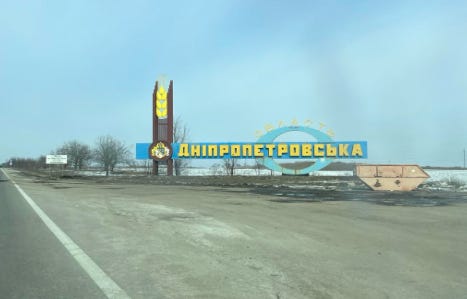As President Donald Trump attempts to lead Ukraine and Russia to a ceasefire and ultimately to a cessation of their conflict that had origins in 2014 but escalated to full-scale combat in Russian President Vladimir Putin’s invasion in 2022, the western world waits to see how that is accomplished.
Creating a deal to end the three-year war between Russia and Ukraine is no small endeavor.
Ukraine has as much as twenty percent of its territory effectively under Russia control. It has lost more than 12000 civilians killed, according to Statista and 62000 military killed (possibly as high as 100,000), according to the New York Times. (It must be noted that sources vary widely on casualty numbers).
Ukraine wants all its territory returned. Russia wants all that it has gained, and the rest of Ukraine.
Russia has lost “nearly 150,000” military killed as of October 2024, again according to the New York Times. By contrast, the U.S. losses in Vietnam from 1965-1975 was about 58,000.
The stakes are obviously high.
Meetings were held in Saudi Arabia between U.S. and Russia delegations to gather views and demands.
Uniquely, there is a business component for U.S. with Ukraine, and the potential for Russia to engage the community of nations that are arrayed in defiance of the long-term strong man Vladimir Putin. The Russian president is indeed responsible for 100,000 deaths on both sides of the border. To say he has fences to mend would be a gross understatement.
President Trump’s new administration has jumped into action, recognizing the extreme situation. Lt. Gen. Keith Kellogg is assigned as Special Envoy for Ukraine and Russia. Secretary of State Marco Rubio, Secretary of Treasury Scott Bessent, and others are playing key roles engaging both sides and other players such as European nations.
The facts demonstrate why the role of the U.S. is not only pivotal but indispensable.
The European nations have provided both military and humanitarian support to Ukraine, but the bulk of military support — by far the most of any nation, according to Statista — comes from the U.S. Whether it’s sophisticated weaponry or ammunition, no nation or even group of nations is close.
It is not all that useful to try to present dollar figures of the support given to Ukraine, with President Trump and European sources differing on the amount. All agree that the U.S. has led the way militarily.
While no foreign country is providing troops on the ground, the support has enabled Ukraine to fight back against the invasion and create a stalemate of sorts for years.
Not incidentally, western leaders said that at the beginning of war, notably then-U.S. Chairman of the Joint Chiefs of Staff, Army Gen. Mark Milley, it would quickly end with a victory for Russia. Milley suggested three days.
Incidentally, he said later in 2023, the war would be a “considerable length of time and it’s going to be long and hard…”
Predicting outcomes in Ukraine is beyond difficult.
It’s clear by now that Ukrainians have no desire to become subject to Russian rule.
The Ukraine story is unfolding before us, and its outcome could define the ultimate success or failure of the Trump presidency.
Ukrainian President Volodymyr Zelenskyy visited the U.S. this week to potentially sign a deal for mineral extractions in Ukraine as compensation for continued U.S. support --- with details too numerous to mention here to be worked out.
On February 28th, President Zelenskyy arrived at the White House for what was ostensibly to be a signing of a deal to share mineral rights with the U.S. to ensure ongoing security protection of Ukraine by the U.S.
Instead, an Oval Office session between the Presidents and other officials, including Vice-President J.D. Vance, turned into a shouting match, in front of world press, that led to Zelenskyy being told to leave the White House with no signing and no clear path forward between the countries.
Despite the blowup, it is likely that all sides hope to culminate with a peace treaty. There are so many details still to be worked out and its design and implementation that it is impossible to say what it looks like.
European countries are meeting at this writing, but it is clear that all of them together cannot match the needs without another outsized contribution from the U.S.
The story continues with an unknown direction.
Note: An earlier version of this article was written for American Veterans Vote
----
James Hutton is a former assistant secretary at the U.S. Department of Veterans Affairs and a retired colonel in the U.S. Army. Follow him on X @jehutton.
Author of Biden-Harris: Views of Misguided Policies Foreign and Domestic 2021-2023



All of that, sir, without saying what you think should happen.
For my part, the invasion happened during Biden's watch for a reason, and quite obviously cannot be undone.
This invasion marks the second Russian breach of the Budapest Memorandum, which no one seems to recall.
I think that if Russia will not step back then neither should we. Putin is obviously determined, but he is one man.